I think anyone who has ever set up a fish tank knows how exciting it feels. We carefully choose the fish and decorate the tank and watch the water bubble peacefully. But then the water turns cloudy and we start wondering if we did something wrong or if our fish are in danger.
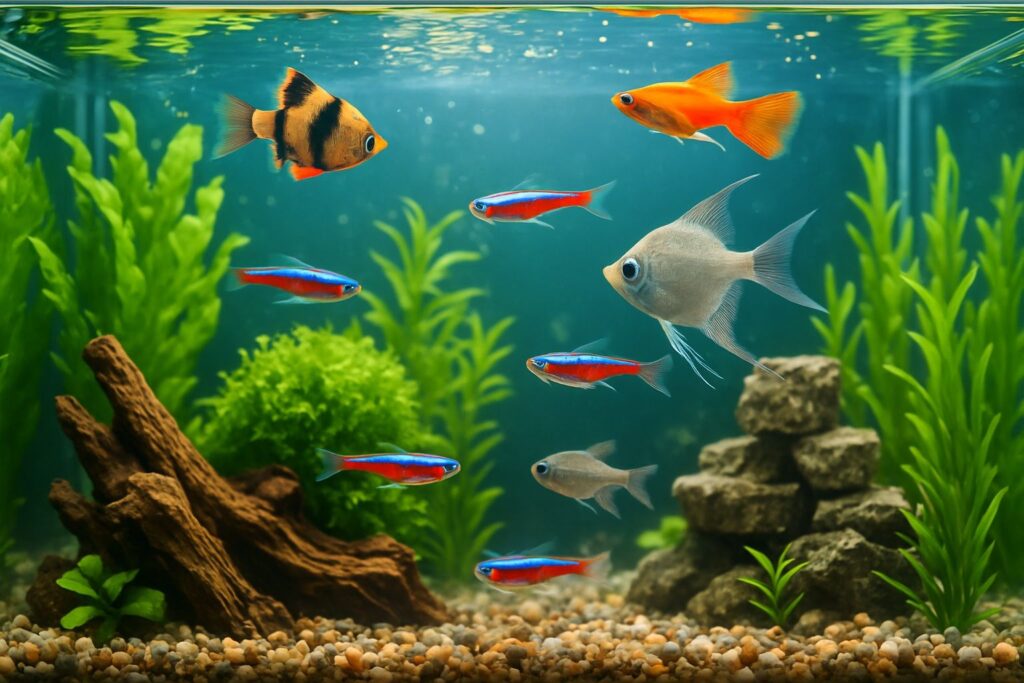
What Causes Cloudy Fish Tank Water
Before we fix the problem we should understand what causes it. Cloudy water can happen for many reasons and knowing the cause helps us choose the right solution.
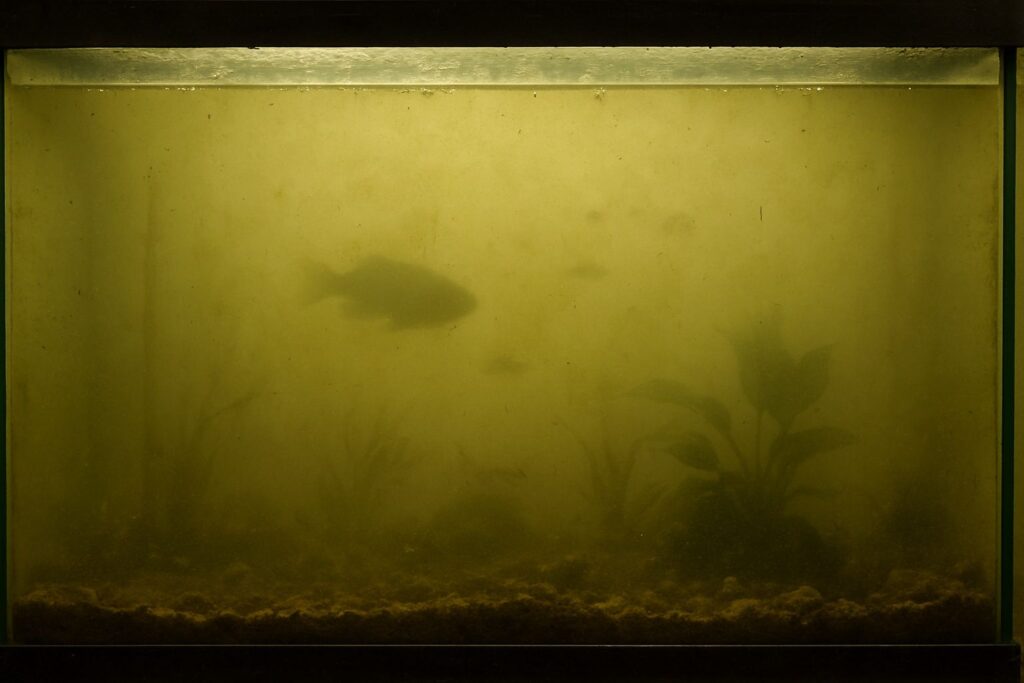
1. Unwashed Gravel and Decorations
If we do not rinse the gravel or decorations before adding them to the tank tiny dust particles can float in the water. This makes the water look cloudy especially in new tanks.
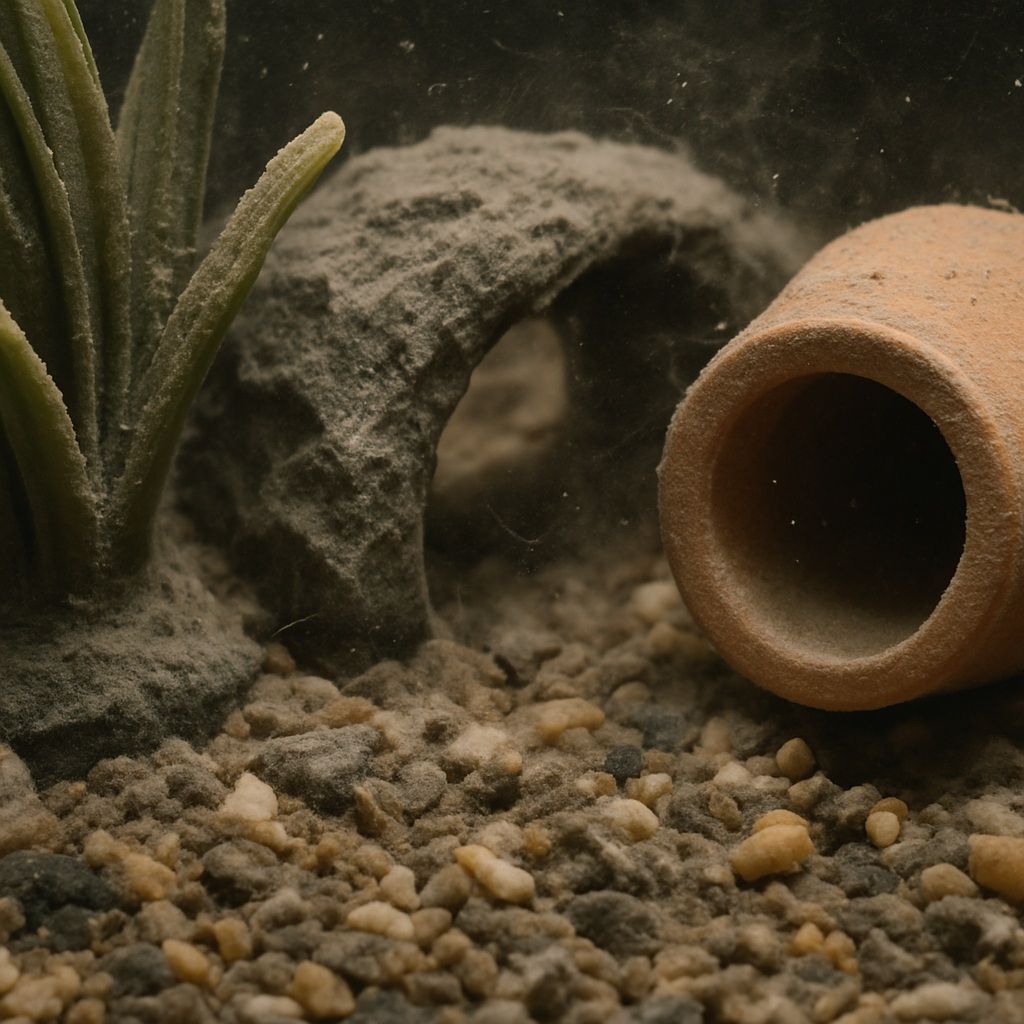
2. Overfeeding the Fish
Feeding fish too much is a common mistake. Leftover food sinks to the bottom and rots and this releases waste into the water. This not only makes the water cloudy but also harms the fish.
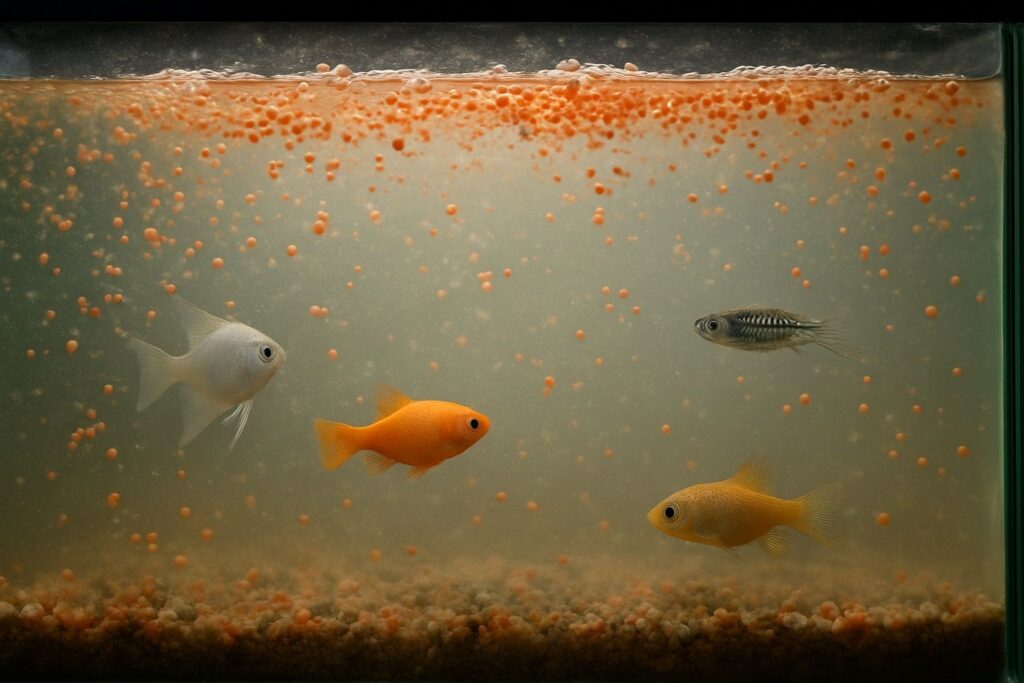
3. Bacterial Bloom
When we set up a new tank bacteria start growing to help break down fish waste. This is normal but sometimes the bacteria grow too fast and make the water look milky. This is called a bacterial bloom.
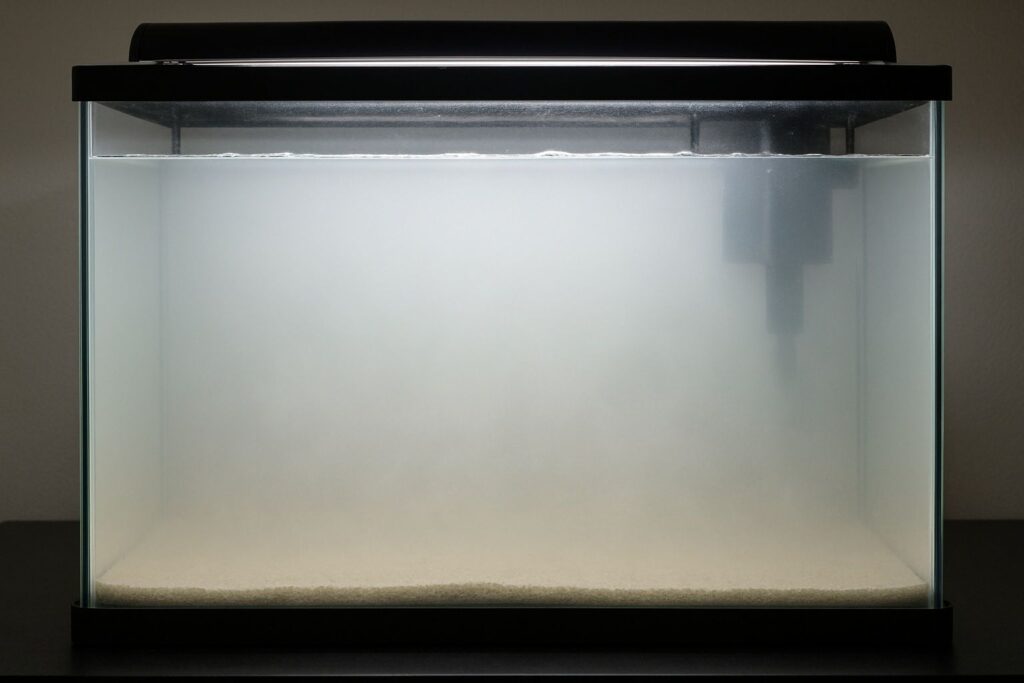
4. Poor Filtration
If the filter is not strong enough or is not working properly it cannot clean the water. That means dirt and waste stay in the tank and cause cloudiness.
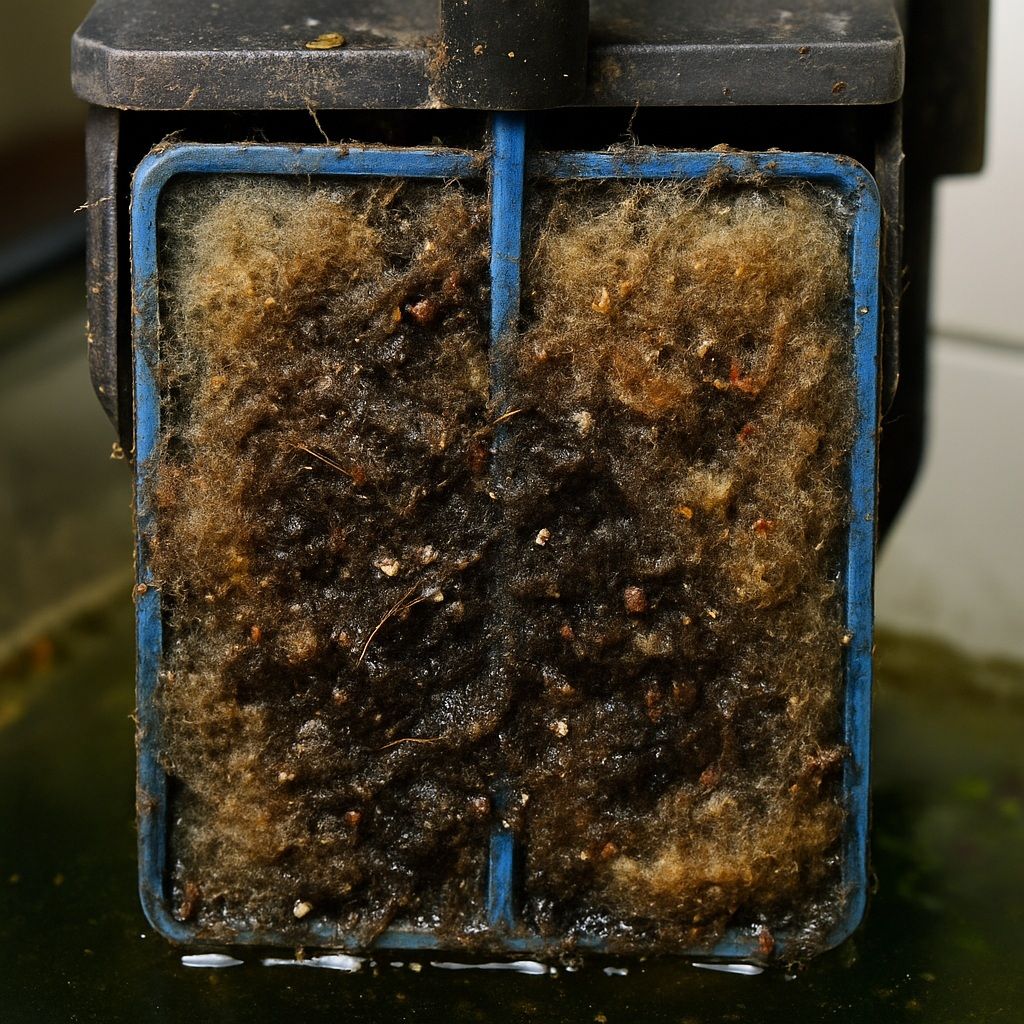
5. Too Many Fish
We all love having lots of fish but if there are too many in one tank their waste builds up quickly. That makes the water dirty and cloudy.
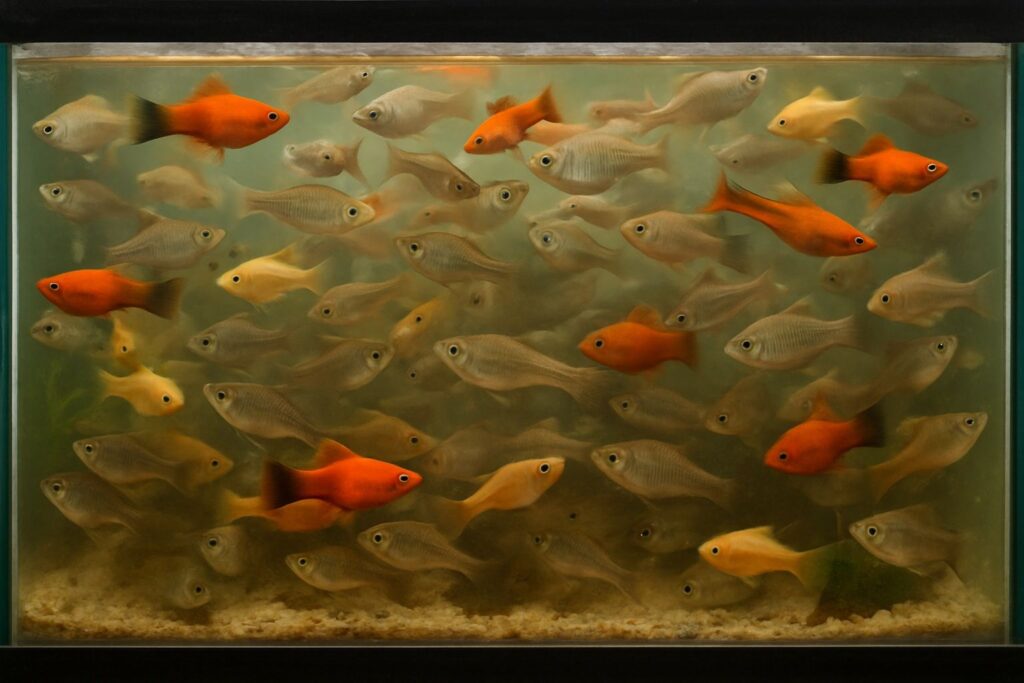
6. Algae Growth
Green cloudy water is usually caused by algae. If the tank gets too much light or has extra nutrients algae can grow fast and turn the water green.
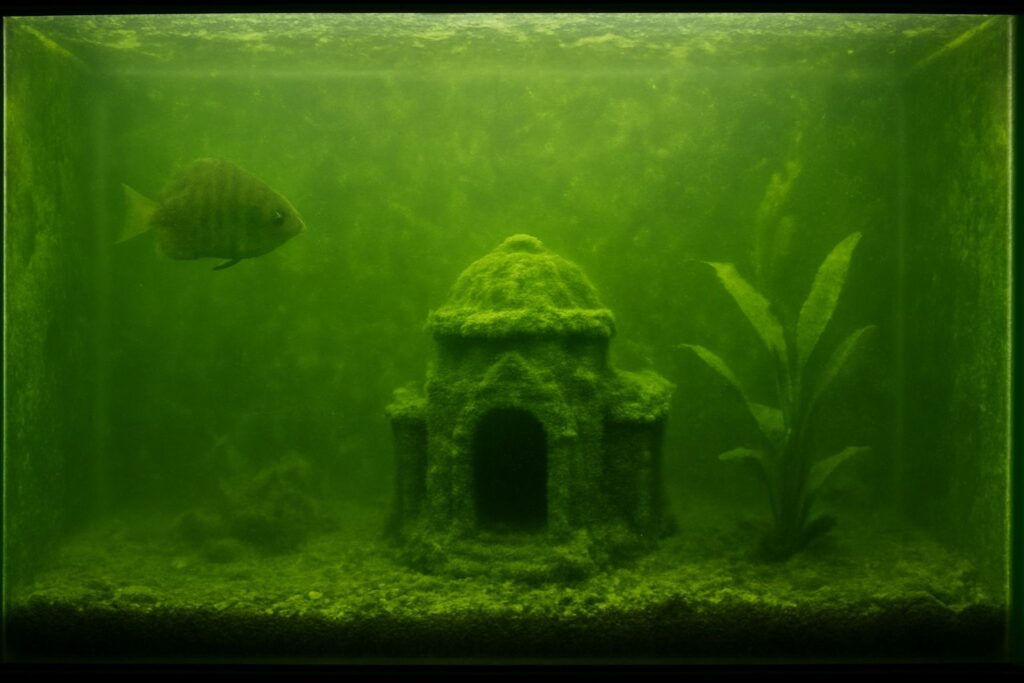
How to Stop Cloudy Water in Your Fish Tank
Now that we know the causes let us talk about how to fix them. These steps are easy to follow and should help you get clear water again.
1. Rinse Everything Before Use
We should always rinse gravel and decorations and even the tank itself before setting it up. Use clean water only because soap can harm the fish.
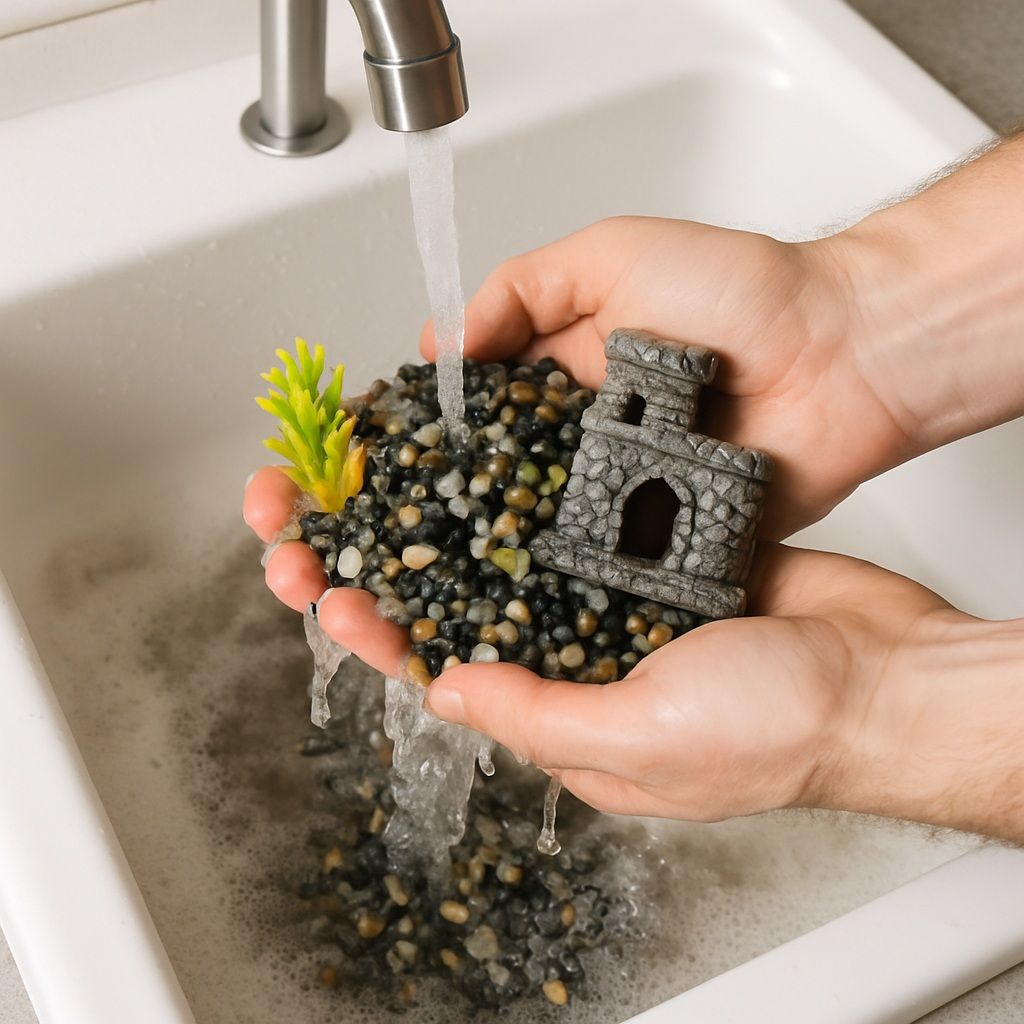
2. Feed the Right Amount
I always make sure to feed my fish only what they can eat in two or three minutes. If we see food floating after feeding that means we are giving too much.
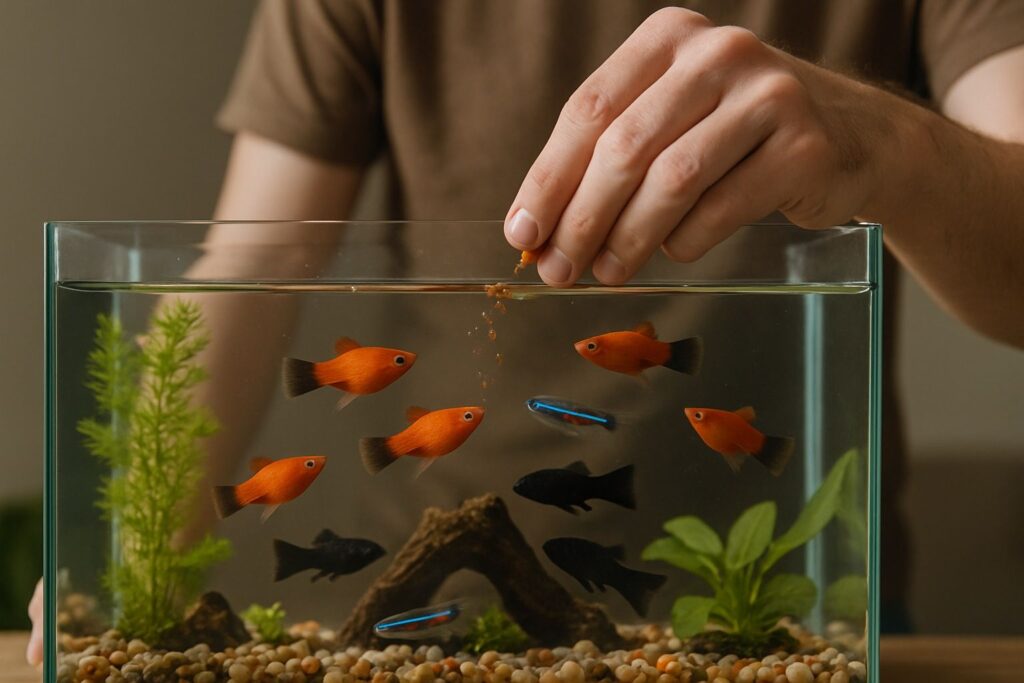
3. Use a Good Filter
A strong filter is like the heart of the tank. It keeps the water moving and removes waste. We should check the filter often and clean it if needed. If the tank is big we may need a more powerful filter.
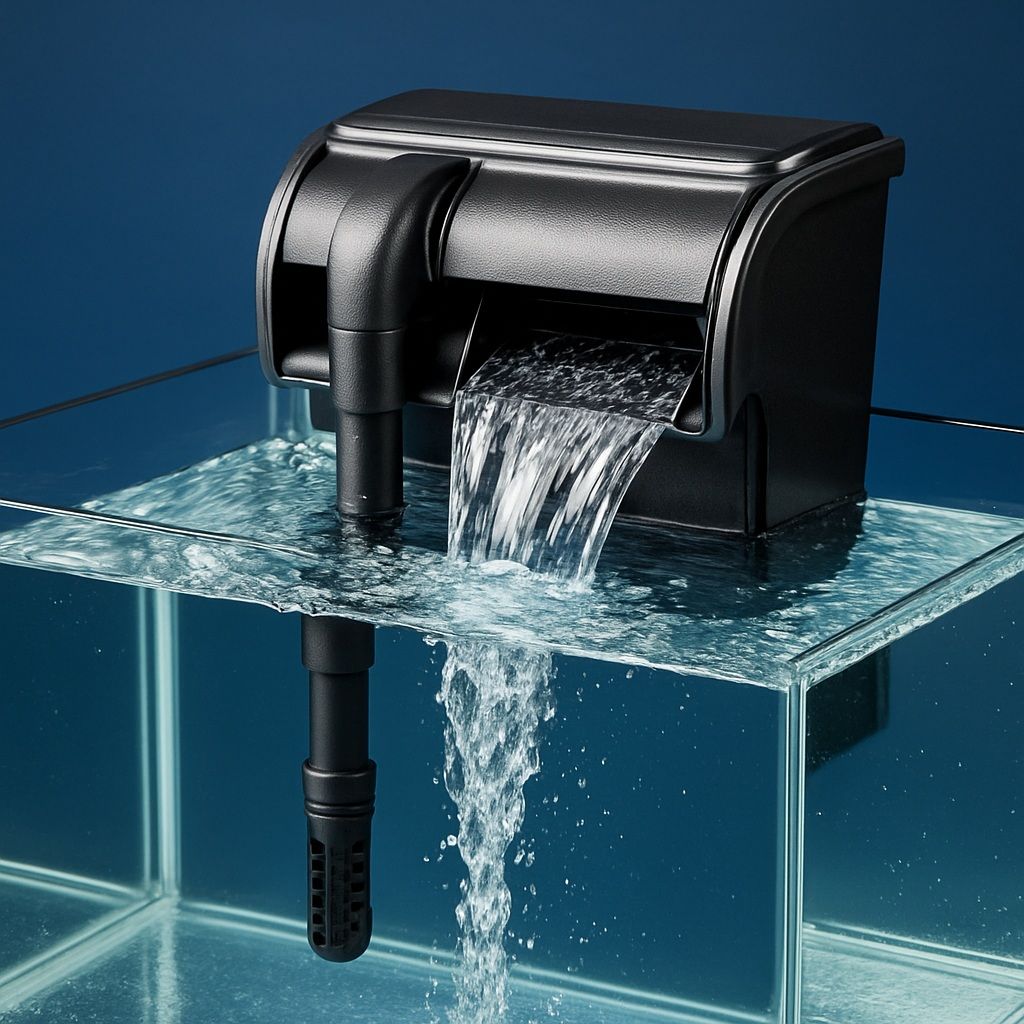
4. Change Water Regularly
We should change twenty to thirty percent of the tank water every week. This helps remove waste and keeps the water fresh. Use a siphon to clean the gravel while changing the water.
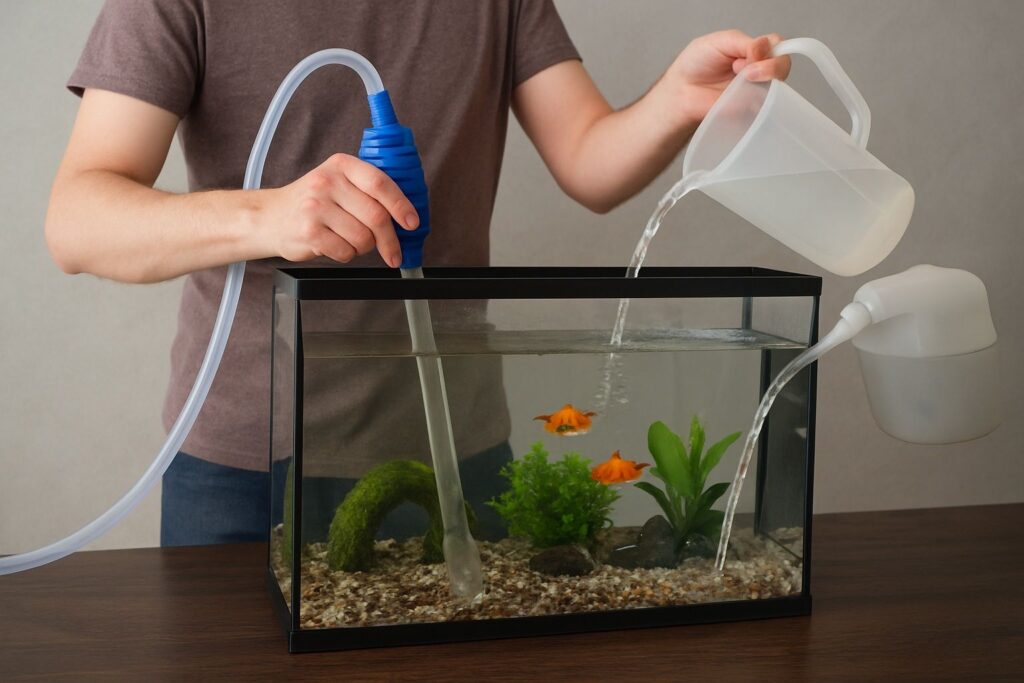
5. Avoid Overcrowding
If we have too many fish the tank gets dirty fast. A good rule is one inch of fish per gallon of water. That way the tank stays balanced and clean.
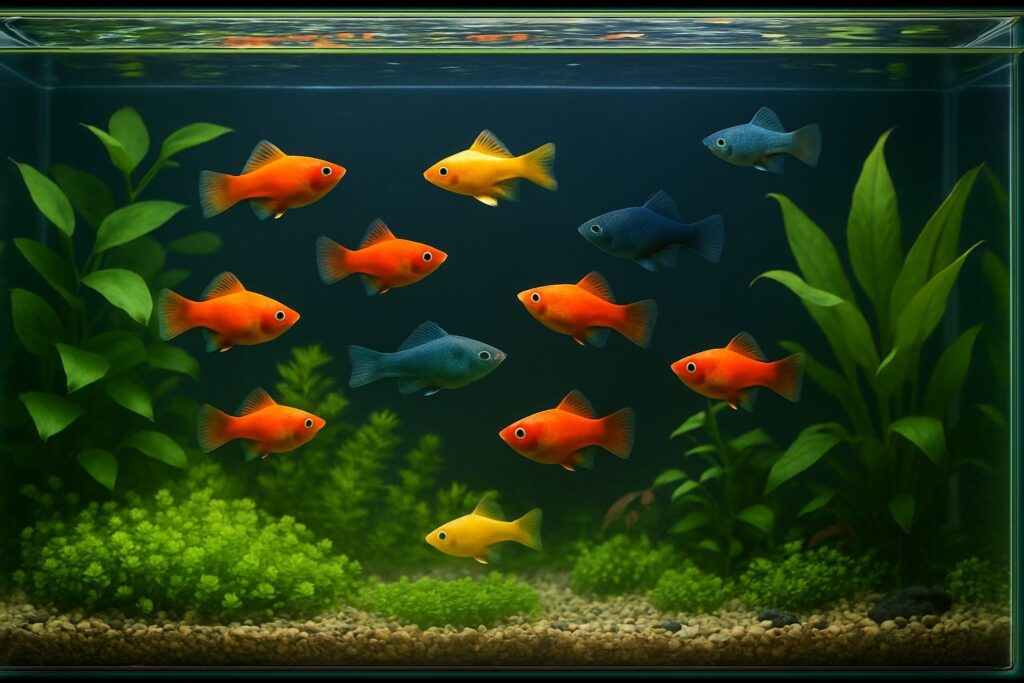
6. Let the Tank Cycle
If the tank is new we should give it time to settle. The cloudy water from bacterial bloom usually clears up in a few days. We should avoid adding too many fish during this time.
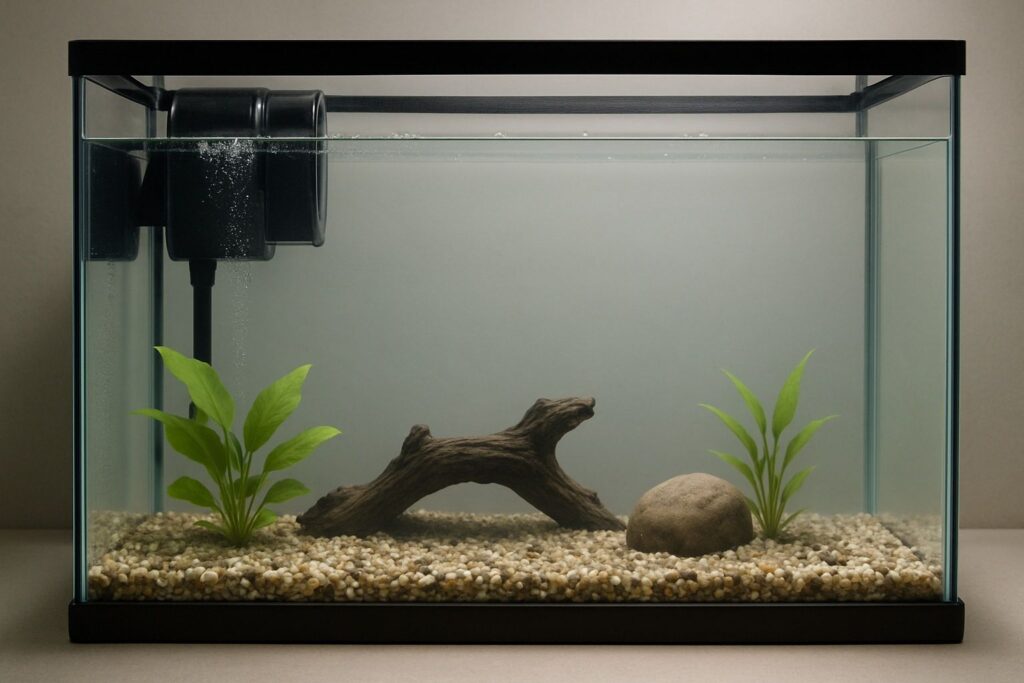
7. Control Lighting
Algae love light. If we leave the tank light on all day algae can grow and make the water green. We should keep the light on for eight to ten hours a day and place the tank away from sunlight.
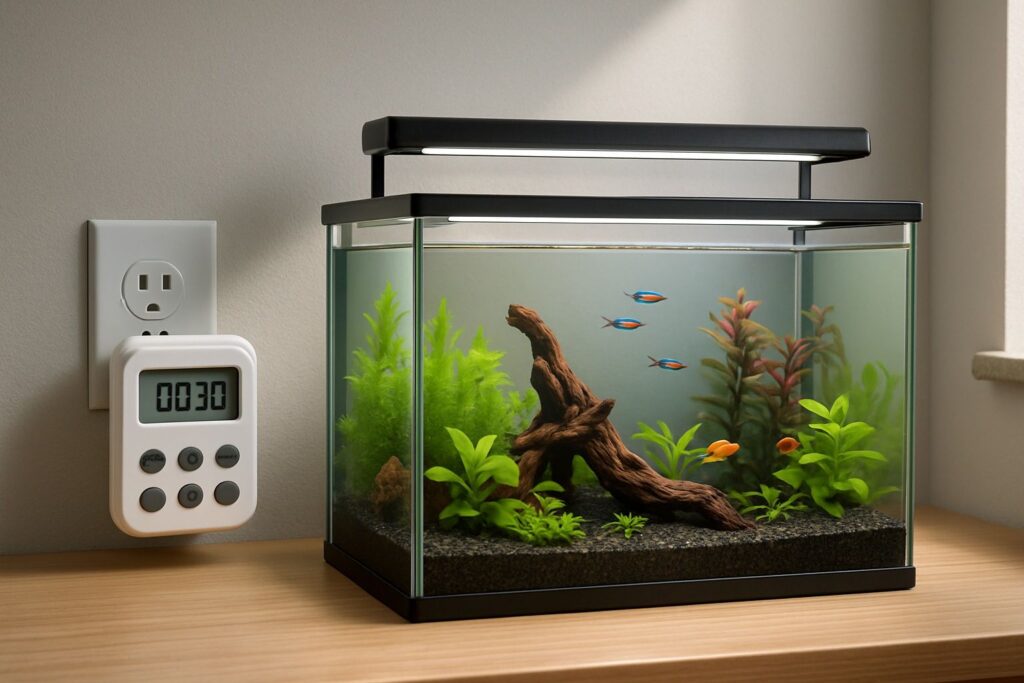
8. Use Water Conditioner
Tap water has chlorine and other chemicals that are bad for fish. We should always use a water conditioner when adding new water to the tank.
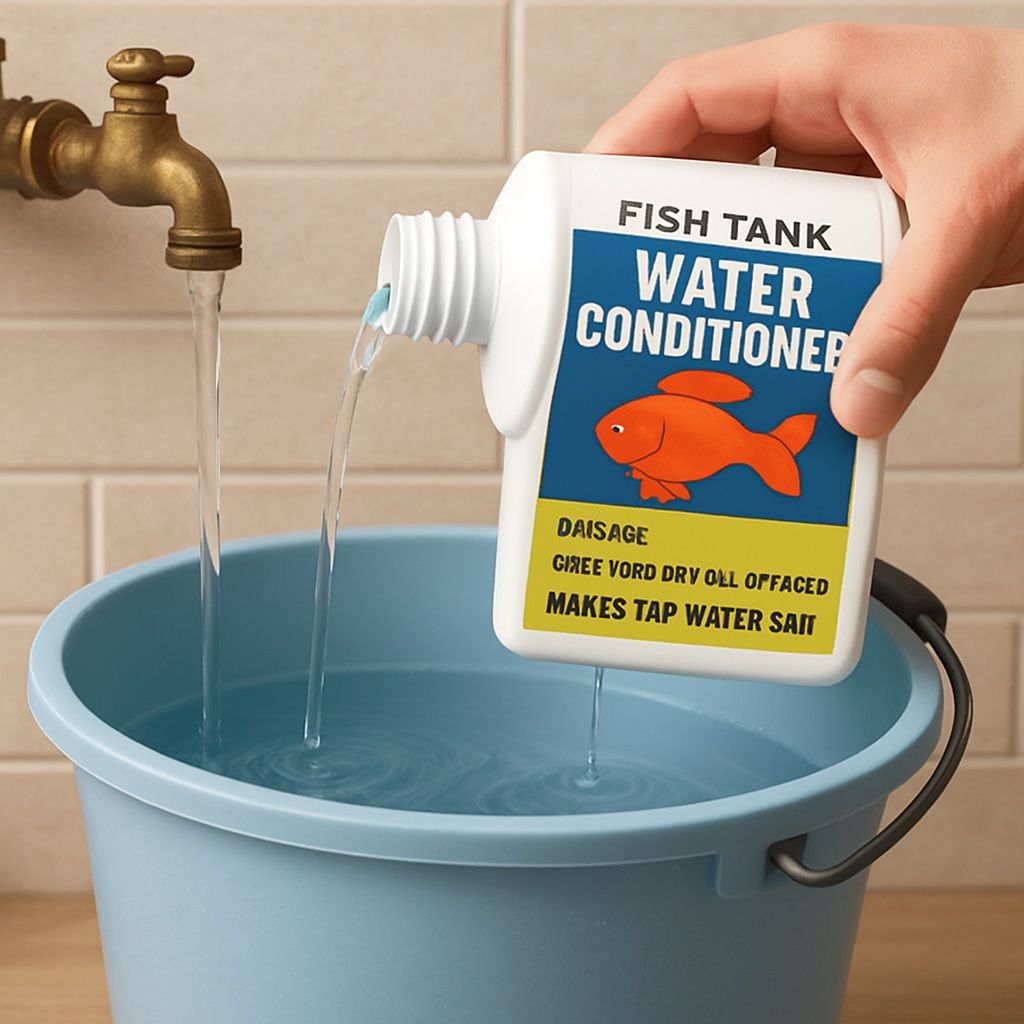
9. Test the Water
We can buy water testing kits to check for ammonia and nitrites and nitrates. If these levels are too high the water gets cloudy and unsafe. We should test the water every week.
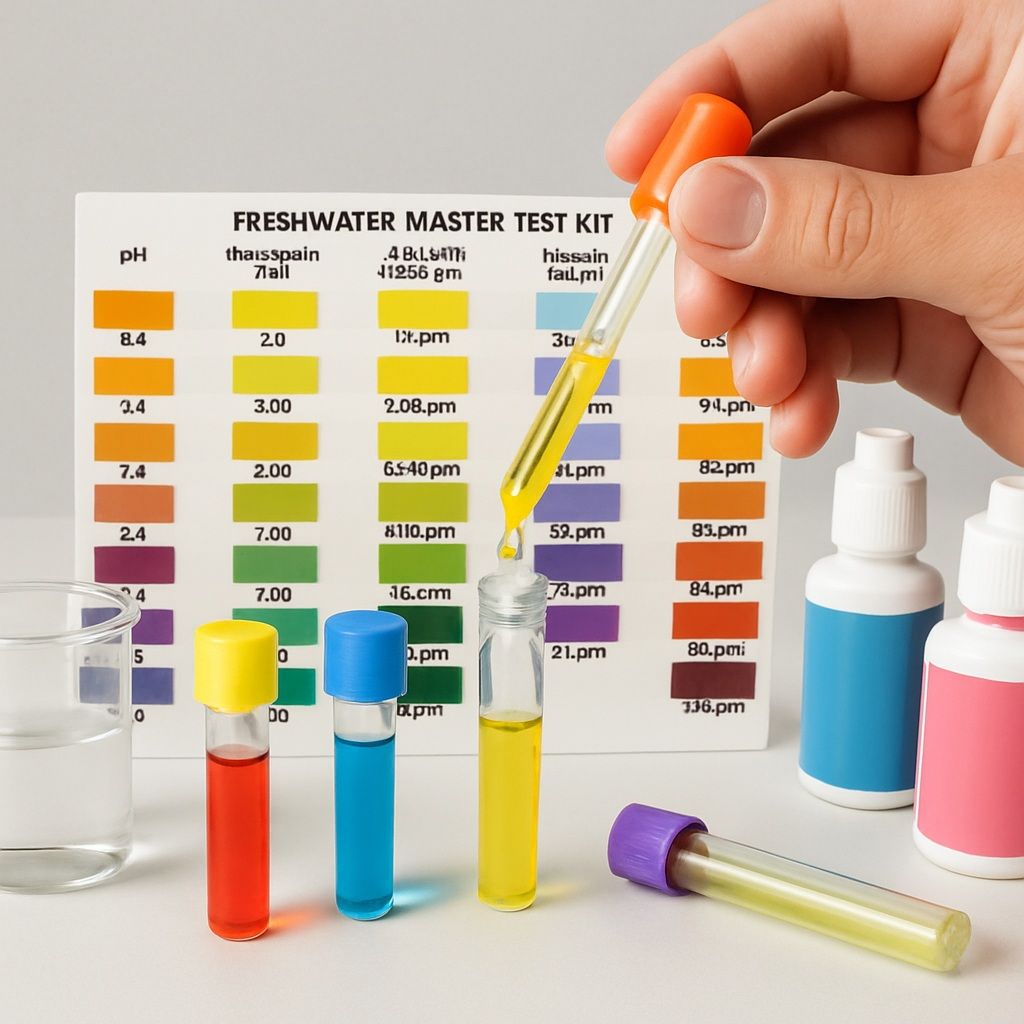
10. Add Beneficial Bacteria
Some products contain good bacteria that help balance the tank. If we are starting a new tank or fixing cloudy water adding these can help speed up the process.
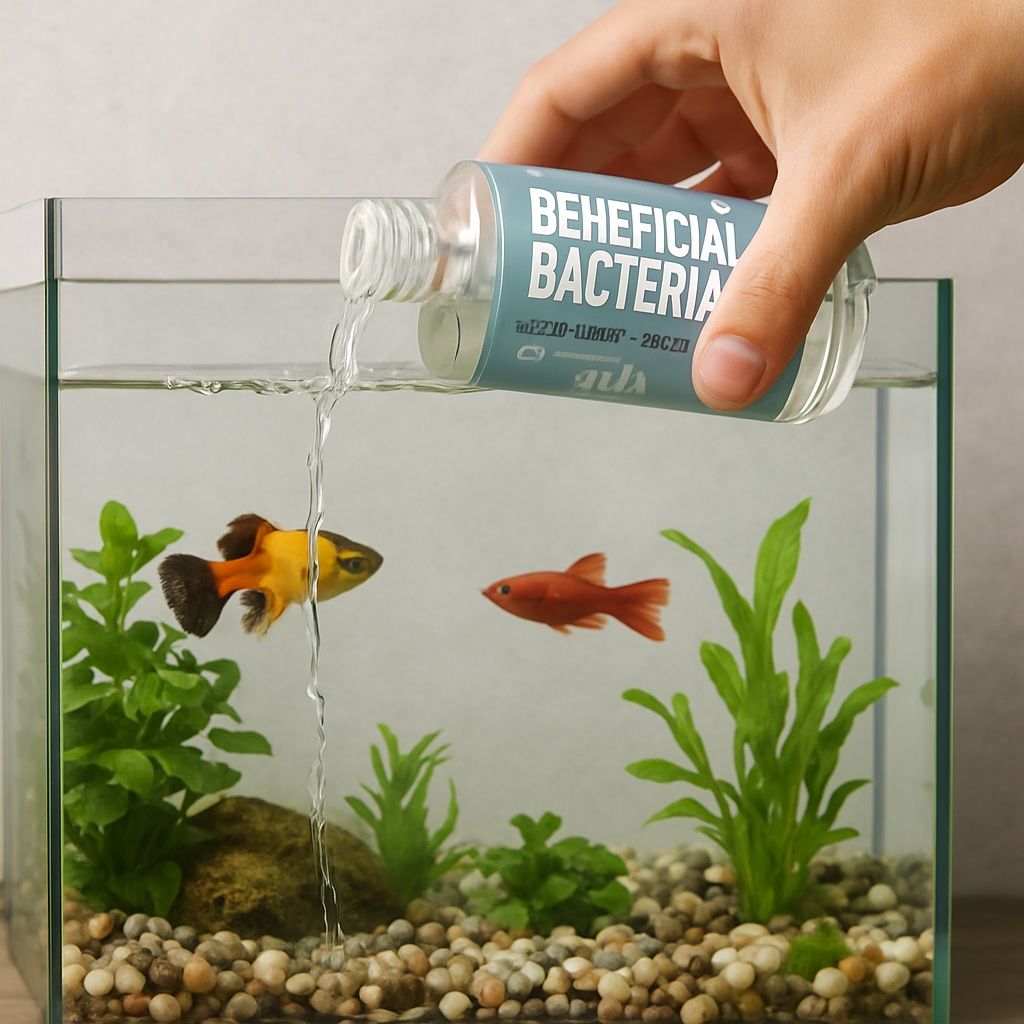
Pro Tips for Long Term Clarity
- Keep a cleaning schedule
I like to set reminders for water changes and filter checks - Use live plants
They absorb waste and help keep the water clean - Do not panic
If the water gets cloudy stay calm. We just need to find the cause and fix it step by step
Meta Description
I think cloudy fish tank water is a common problem and fixing it is easier than you think. Learn simple steps to keep your aquarium clean and healthy. This guide is perfect for students and beginners who want clear water and happy fish.
FAQs
1. Why is my fish tank cloudy even after cleaning?
That could be due to leftover food or poor filtration or a bacterial bloom. We should check all these things and give the tank time to settle
2. Can cloudy water harm my fish?
Yes if the water stays cloudy for too long it can stress the fish and make them sick. We should fix it quickly
3. How often should I clean my fish tank ?
We should change twenty to thirty percent of the water every week and clean the filter once a month. Gravel cleaning should be done during water changes
4. Is it okay to use tap water in my tank?
Yes but we must use a water conditioner to remove chlorine and other harmful chemicals
5. What if my filter is working but the water is still cloudy?
We should check if the filter is the right size for our tank and clean it if it is clogged. Also test the water for ammonia and nitrites
6. How long does it take for cloudy water to clear up?
If it is a bacterial bloom it usually clears in two or three days. If it is due to other issues it depends on how fast we fix them
7. Can I use chemicals to clear the water?
Some products can help but we should use them carefully. Natural methods like water changes and good filtration are safer
Final Thoughts
I know how frustrating it can be to see your beautiful fish tank turn cloudy. But this problem is very common and very easy to fix. If we follow the steps above we can enjoy a clean and healthy tank that both we and our fish will love.
Fish tanks are like small worlds. Everything we do from feeding to cleaning affects the water. So we should be patient and stay consistent and enjoy the process.
Whether you are a student learning about aquariums or a hobbyist trying to improve your setup I hope this guide helps you keep your fish tank crystal clear. If you ever feel stuck just come back to this article and follow the steps. Your fish will thank you.
